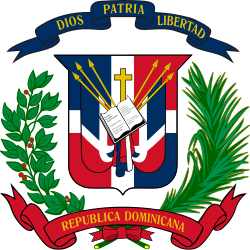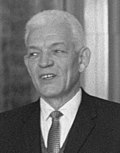| |||||||||||||||||
Presidential election | |||||||||||||||||
| |||||||||||||||||
 Results by department | |||||||||||||||||
| |||||||||||||||||
 |
|---|
General elections were held in the Dominican Republic on 1 June 1966. [1] Following the 1963 coup which toppled elected president Juan Bosch of the Dominican Revolutionary Party, supporters of his constitutional reforms were excluded from the elections, [2] although Bosch himself contested them. The result was a victory for Joaquín Balaguer of the Reformist Party, whilst his party also won the Congressional elections. Voter turnout was 76%. [3]



